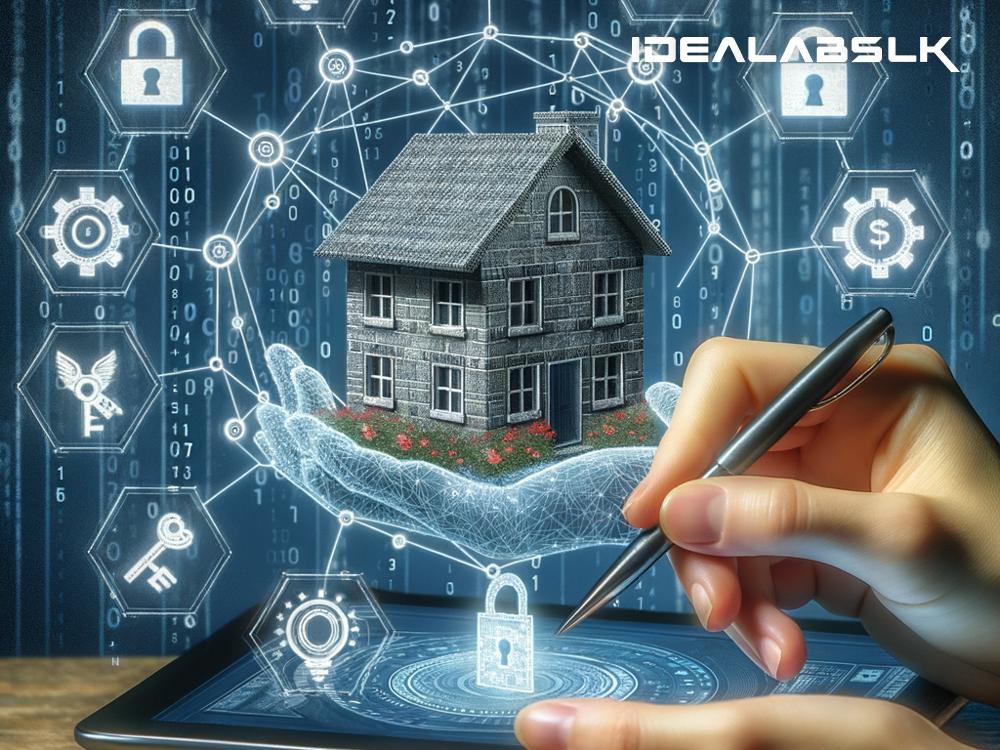Blockchain in Real Estate: Reducing Fraud and Enhancing Transaction Security
In recent years, blockchain technology, the backbone of cryptocurrencies like Bitcoin, has started transforming numerous industries, with real estate among the most notable. Traditional real estate transactions can be cumbersome, opaque, and fraught with inefficiencies. However, blockchain is changing the game by reducing fraud and enhancing transaction security. If you're wondering how this is happening, let's dive into the world of blockchain in real estate, breaking down the complex concepts into simple English.
Understanding Blockchain
Imagine blockchain as a digital ledger that is completely transparent and tamper-proof. Once information is recorded, it can't be altered or deleted, which makes it incredibly secure. This characteristic is what makes blockchain an ideal tool for improving transparency and trust in transactions, including real estate deals.
Reducing Fraud in Real Estate
Fraud has been a longstanding issue in the real estate industry. From forged documents to impersonation, scammers have found various ways to cheat people out of their money. However, blockchain is significantly reducing these risks.
-
Immutable Records: Since blockchain records cannot be altered once entered, it becomes nearly impossible for fraudsters to forge documents or tamper with property records.
-
Transparent Transactions: All parties in a blockchain network have access to the same information and transaction history, which leaves no room for hidden alterations or discrepancies.
-
Identity Verification: Blockchain provides advanced methods for verifying identities, ensuring that the person you're dealing with is indeed who they claim to be.
Enhancing Transaction Security
Blockchain does more than just combat fraud; it significantly enhances the security of real estate transactions. Here's how:
-
Smart Contracts: Imagine a contract that automatically executes and enforces itself. That's a smart contract for you. These digital contracts on the blockchain can automatically process transactions once certain conditions are met, eliminating human errors and delays.
-
Decentralization: Unlike traditional records kept by a central authority, blockchain operates on a decentralized network. This means there’s no single point of failure, making it much harder for cyberattacks to succeed.
-
Encryption: Blockchain uses advanced encryption techniques, making it incredibly difficult for unauthorized parties to access transaction details without permission.
Streamlining Real Estate Transactions
Beyond enhancing security, blockchain is making real estate transactions faster and less complicated. Here’s how:
-
Eliminating Intermediaries: Typically, real estate deals involve multiple intermediaries like agents, lawyers, and banks, each adding time and cost to the transaction. Blockchain simplifies this by allowing direct transactions between buyers and sellers, reducing fees and speeding up the process.
-
Global Marketplace: Blockchain creates a global digital platform where property listings, payments, and records are accessible from anywhere in the world, broadening the market for sellers and options for buyers.
-
Efficient Property Management: For property owners and managers, blockchain offers tools for managing properties more efficiently, from securely storing lease agreements to automatically collecting rent through smart contracts.
The Future of Real Estate with Blockchain
As exciting as these developments are, we're only scratching the surface. The future could see entire property ownership structures based on blockchain, with shares in properties traded as easily as stocks on an exchange. It promises a world where real estate transactions are faster, more secure, and accessible to anyone with a smartphone or computer.
Challenges and Considerations
Despite its potential, blockchain in real estate is not without challenges. Technical barriers, regulatory uncertainty, and the need for widespread adoption are among the issues that need addressing. Moreover, transitioning to a blockchain-based system requires significant investment in technology and training.
Conclusion
Blockchain technology is poised to revolutionize the real estate industry by reducing fraud and enhancing the security and efficiency of transactions. Its promise of transparent, tamper-proof records and the elimination of intermediaries could lead to more direct and trustworthy dealings in real estate. While there are hurdles to overcome, the potential benefits make it a development worth watching. As we move forward, it will be fascinating to see how blockchain continues to transform the way we buy, sell, and manage property in an increasingly digital world.

